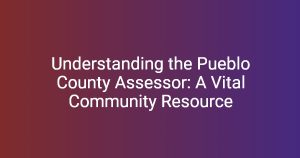The phrase “this user is under the supervision of the FBI” has significant implications for those it describes and raises essential questions about personal freedom, legal frameworks, and public safety. Understanding what it means to be under FBI supervision is crucial, particularly in a climate of heightened national security concerns. The FBI’s oversight plays a pivotal role in various situations, from monitoring criminal suspects to maintaining the safety of witnesses in protection programs. This exploration delves deeply into the mechanisms, legal structures, and implications relating to FBI supervision.
Understanding FBI Supervision
What Does Supervision Mean?
In a law enforcement context, supervision refers to the processes by which agencies like the FBI monitor individuals for compliance with the law. This can include ongoing surveillance, restrictions on movement, and regular check-ins. Supervision aims to ensure that subjects adhere to legal requirements while allowing law enforcement to collect pertinent information about potential criminal activities.
Types of Individuals Under FBI Supervision
Several categories identify individuals who may fall under FBI supervision:
- Criminal suspects: Those actively being investigated for criminal activities are under close scrutiny.
- Witness protection program participants: Individuals whose safety is at risk due to their cooperation with law enforcement.
- Individuals involved in national security cases: Those positioned as threats to national security due to their associations or actions.
Legal Framework
Relevant Laws and Regulations
Understanding the legal frameworks that underpin FBI supervision is essential. Several key laws guide these operations:
- USA PATRIOT Act: This law expanded the government’s ability to monitor communications and conduct investigations concerning terrorism.
- Federal guidelines on monitoring: These regulations ensure that surveillance and monitoring practices comply with constitutional rights.
Individuals under supervision retain certain rights, including the right to legal counsel and protection from unlawful searches or seizures.
Process of FBI Oversight
The process of placing an individual under supervision involves several stages:
- Initial investigation and identification: The FBI must gather evidence indicating the individual poses a threat or is involved in criminal activity.
- Procedures for placing an individual under supervision: After sufficient evidence is gathered, formal mechanisms such as court orders may come into play.
- Duration and evaluation of supervision: Supervision may last for varying durations, depending on ongoing evaluations of risk and compliance with legal stipulations.
Implications of Being Under FBI Supervision
Personal Impact
Being under FBI supervision can significantly affect an individual’s personal life. Examples of personal impacts include:
- Restrictions on movement: Individuals may have limitations on where they can go, especially if they pose a flight risk.
- Communication limitations: Communication with specific individuals may be prohibited or subject to monitoring.
- Reporting requirements: Regular check-ins with law enforcement may be necessary, creating stress and uncertainty.
Legal Consequences
Individual rights often conflict with legal consequences under supervision:
- Criminal charges: If individuals violate conditions of their supervision, they may face new criminal charges.
- Civil liberties: The balance between safety and personal freedoms often raises questions about rights infringements.
- Legal counsel and representation: Those under FBI supervision have the right to legal representation, which is crucial for navigating the complexities of their situation.
Case Studies
Famous Cases
There have been several high-profile individuals who experienced being under the supervision of the FBI. Here are notable examples:
- John Gotti: As the head of the Gambino crime family, Gotti’s operations led to extensive FBI surveillance that ultimately resulted in his conviction.
- Edward Snowden: After leaking classified information, Snowden became a fugitive under FBI oversight, demonstrating how national security intertwines with personal freedom.
- George H.W. Bush: Although not a criminal suspect, as the former president, he experienced monitoring during specific investigations.
Comparative Analysis
Examining cases like those highlighted offers valuable lessons about the FBI’s approach to supervision:
- Differences in handling: Each case revealed varying levels of scrutiny and methodology by the FBI.
- Lessons learned: Cases illustrate the necessity for balancing legal oversight with individual rights and potential abuses of power.
| Individual | Reason for Supervision | Outcome |
|---|---|---|
| John Gotti | Organized crime activities | Convicted, serving life in prison |
| Edward Snowden | Leak of classified information | Asylum in Russia, remains under surveillance |
| George H.W. Bush | Investigation due to association with various cases | Cleared of wrongdoing |
Public Perception
Media Representation
The media plays a vital role in shaping public perception of individuals under FBI supervision. Often, the portrayal can highlight sensational aspects while neglecting the complexities of each case. This can lead to:
- Sensationalism: Often, the media focuses on dramatic elements of cases, impacting how the public views law enforcement practices.
- Stigma: Individuals labeled as “under FBI supervision” may face social stigma and discrimination.
Community Awareness
Understanding public awareness and concerns about FBI oversight is essential:
- General public concerns: Many community members express worries about safety versus potential government overreach.
- Community safety: Proper FBI oversight can enhance neighborhood security by deterring criminal activity.
Conclusion
This exploration of what it means when this user is under the supervision of the FBI underscores the intersections of individual rights, legal frameworks, and societal safety. As citizens, it is crucial to remain informed and engage in discourse surrounding these issues as they impact us all.
FAQ
- What does it mean to be under FBI supervision? Being under FBI supervision typically indicates that an individual is monitored by the FBI due to criminal activity or national security concerns.
- Who can be under FBI supervision? Criminal suspects, participants in witness protection programs, and individuals involved in national security cases can all be under FBI supervision.
- Are there legal rights for those under FBI supervision? Yes, individuals retain certain rights, including the right to legal representation and protections against unlawful searches.
- What are the implications of being under supervision? Individuals may experience restrictions on movement and communication, have reporting requirements, and face potential criminal charges for violations.
- Can media portrayals affect individuals under FBI supervision? Yes, sensationalized media narratives can lead to social stigma and impact public opinions and perceptions of individuals under supervision.
- How does the FBI ensure compliance with regulations? The FBI conducts evaluations and monitors compliance through legal mechanisms, regular check-ins, and oversight protocols.


